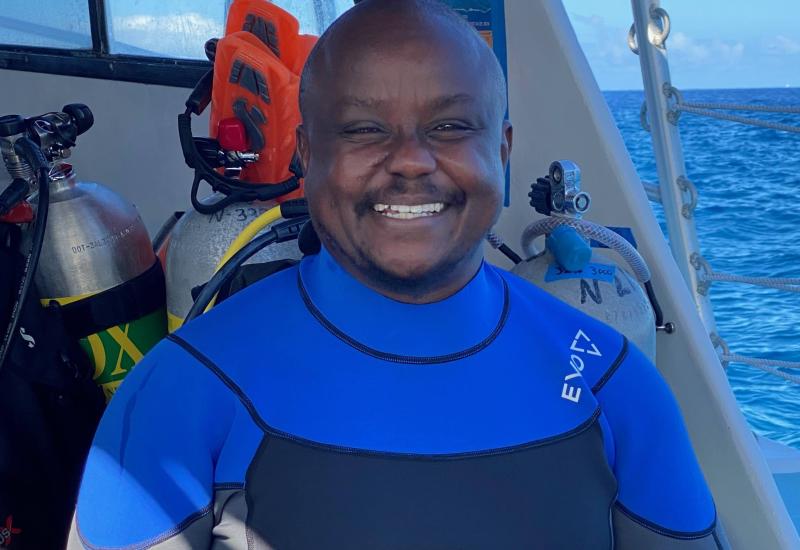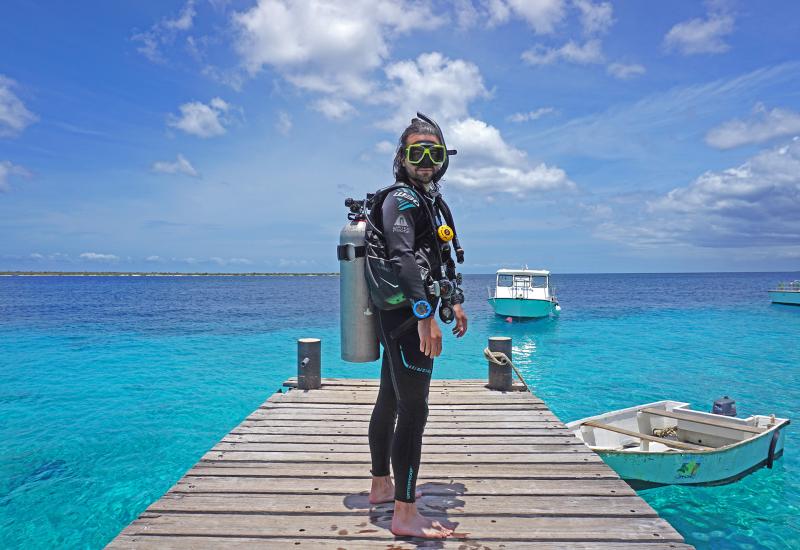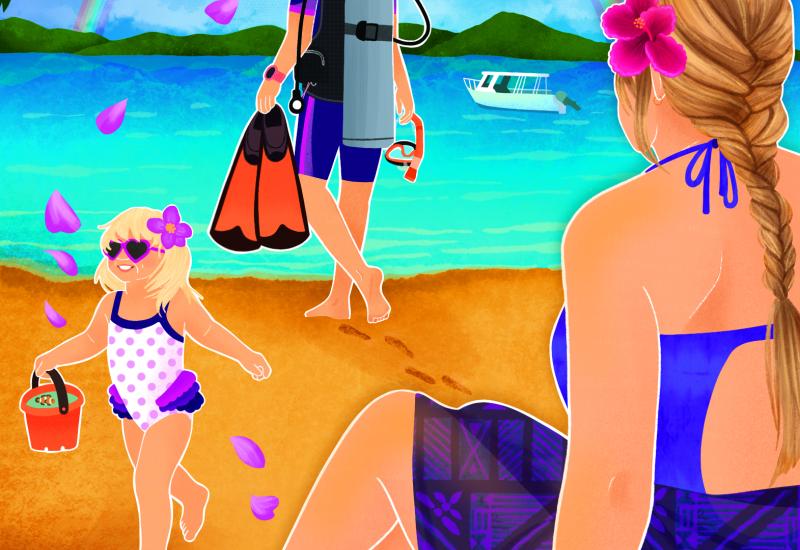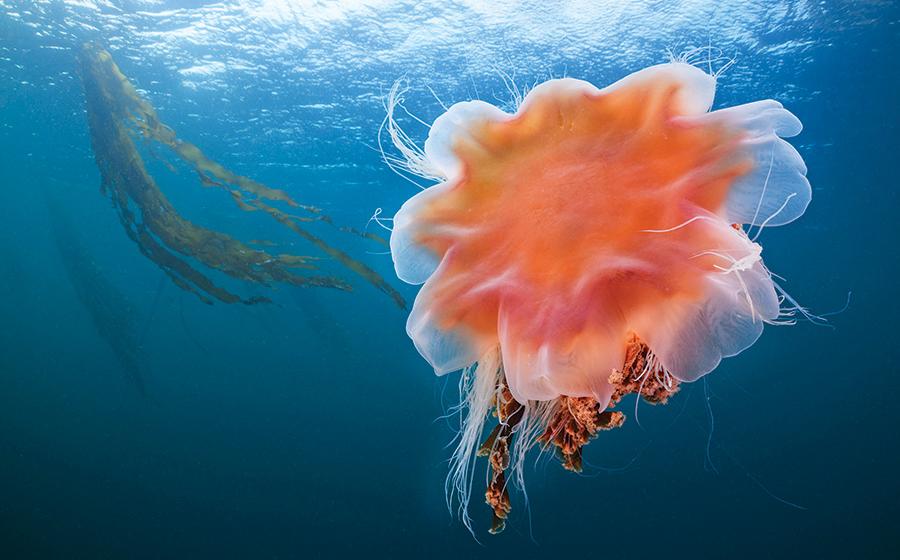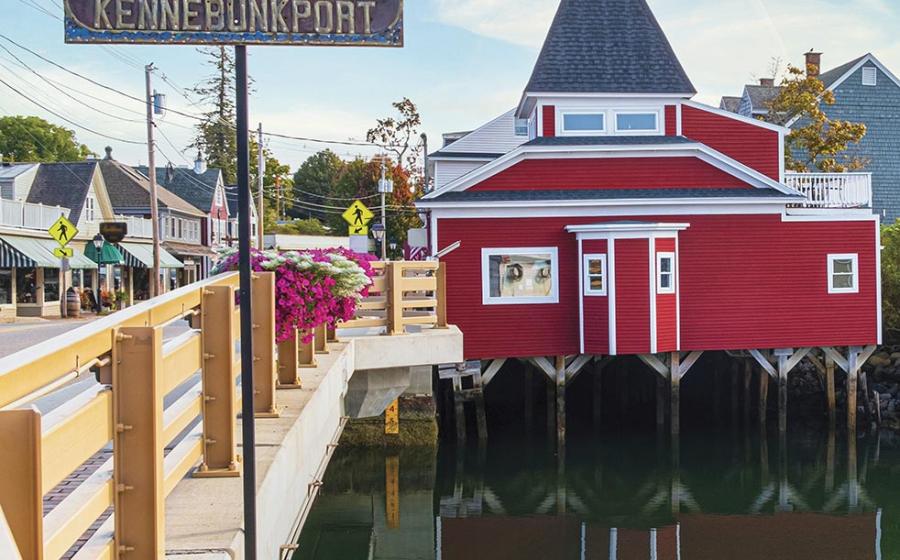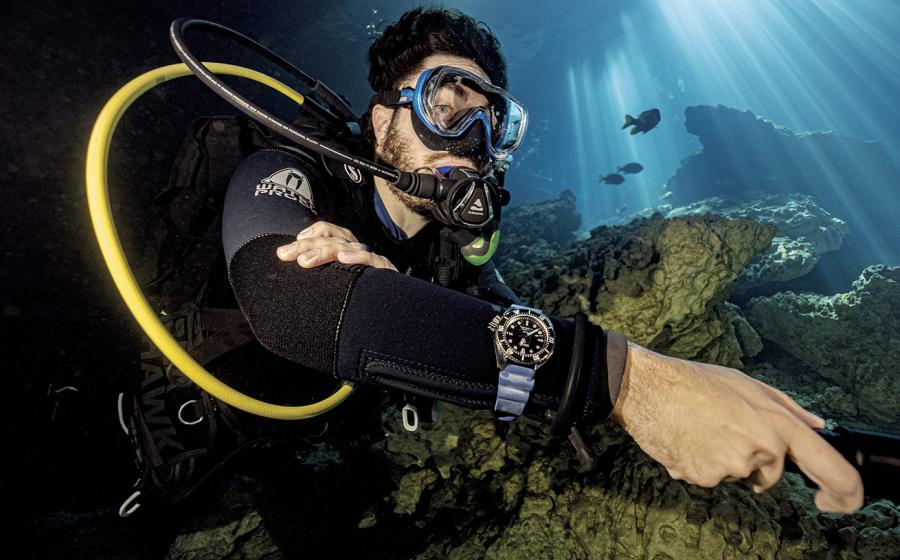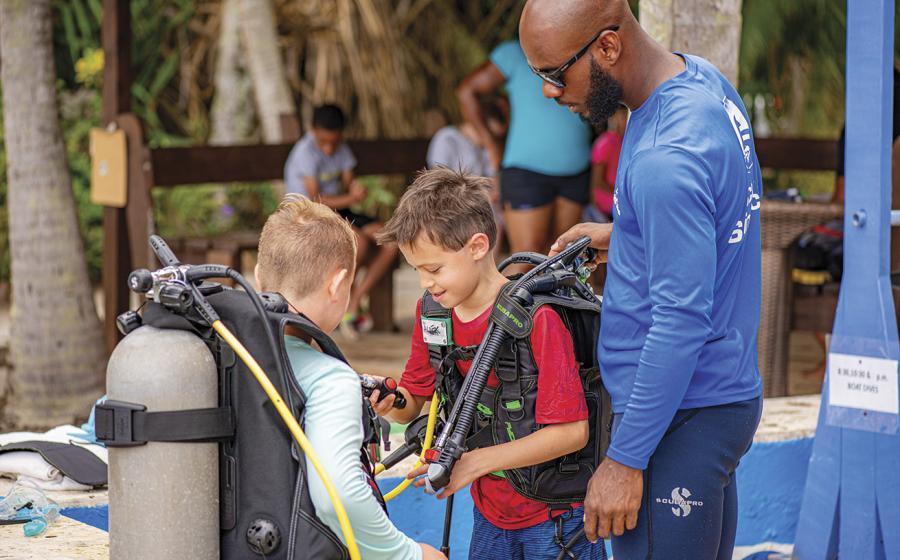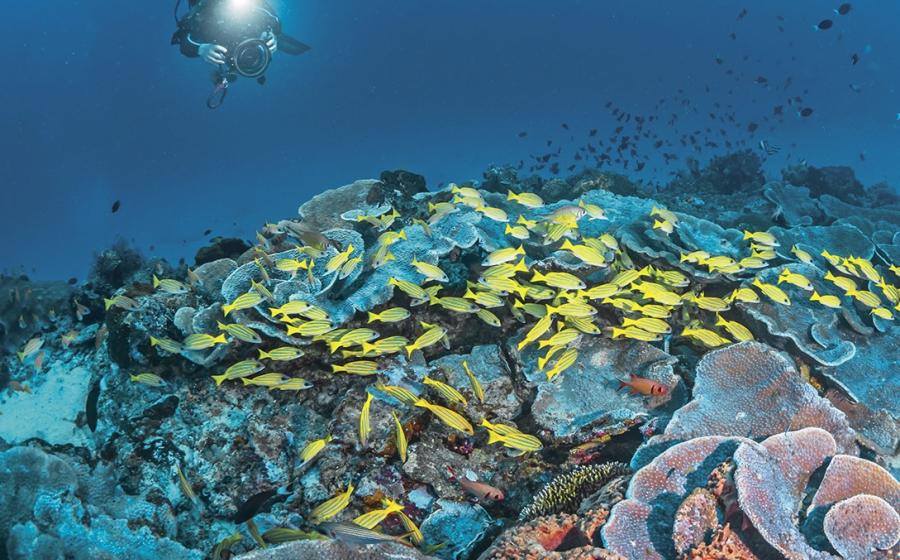The Historic Underwater Panel You Need to Know About
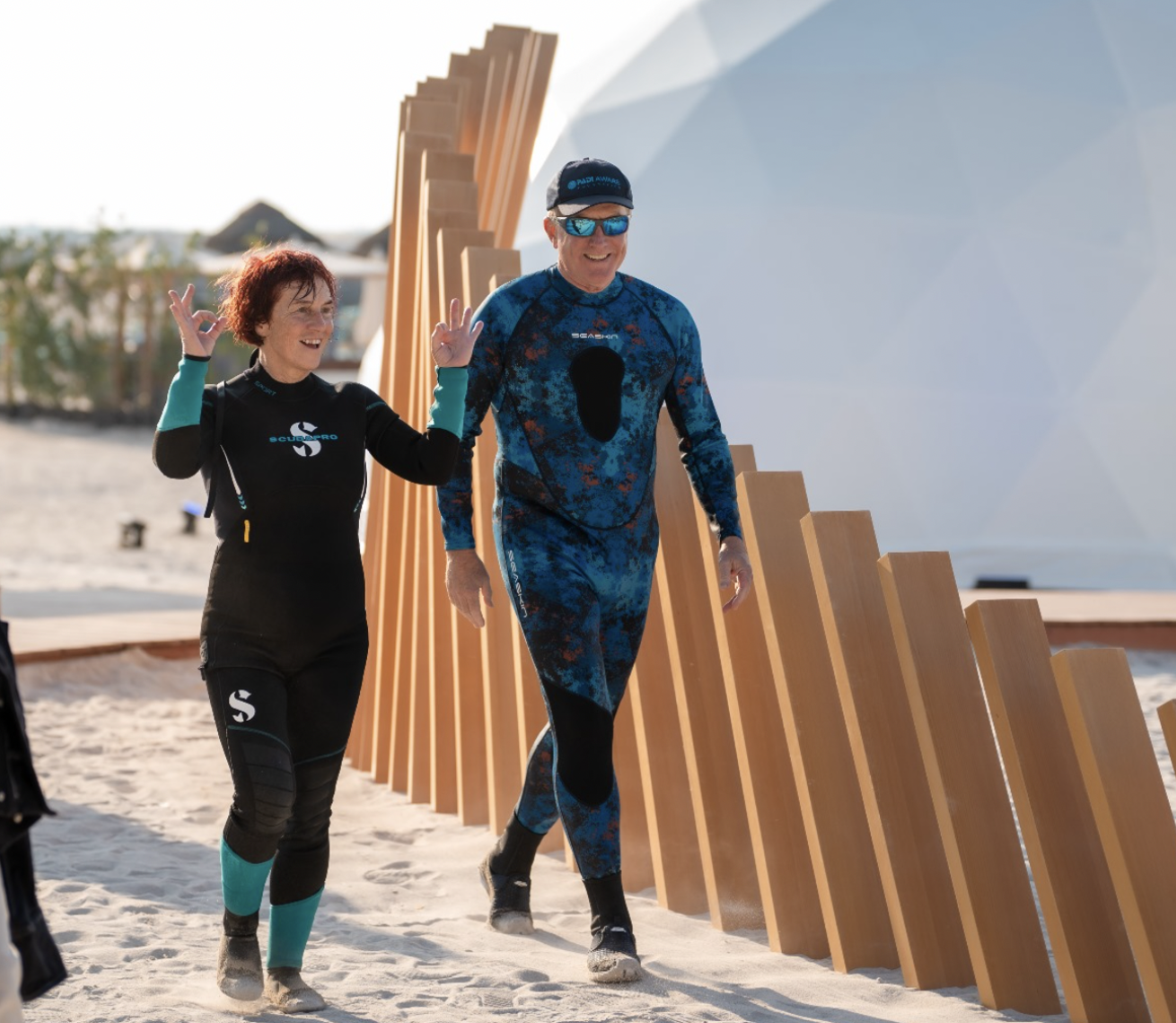
Global Citizen ForumDr. Deborah Brosnan and PADI's Drew Richardson following their underwater panel
PADI's CEO and President, Drew Richardson, has completed over 6,500 dives in some of the world's least-accessible regions. His most memorable underwater experience occurred seven meters under a thick Antarctica ice sheet. Recounting the other-worldly landscapes and sub-zero water temperatures, Richardson’s first Antarctic dive remains etched in his mind because his dry suit malfunctioned—far from ideal in such treacherous, freezing conditions.
“It flooded, and my fin fell off, but I'm here,” Drew laughed when I asked him which dive had left the biggest impression.
Dr. Deborah Brosnan, a heavyweight in the marine science community, joined me for the interview. She, too, has experienced many mindblowing underwater experiences, including a Montserrat volcano eruption that covered the reef with a layer of ash.
“I got to see how corals clean themselves,” she said, explaining that some fast-growing species couldn’t shake off the ash and would die while others had excellent cleaning mechanisms.
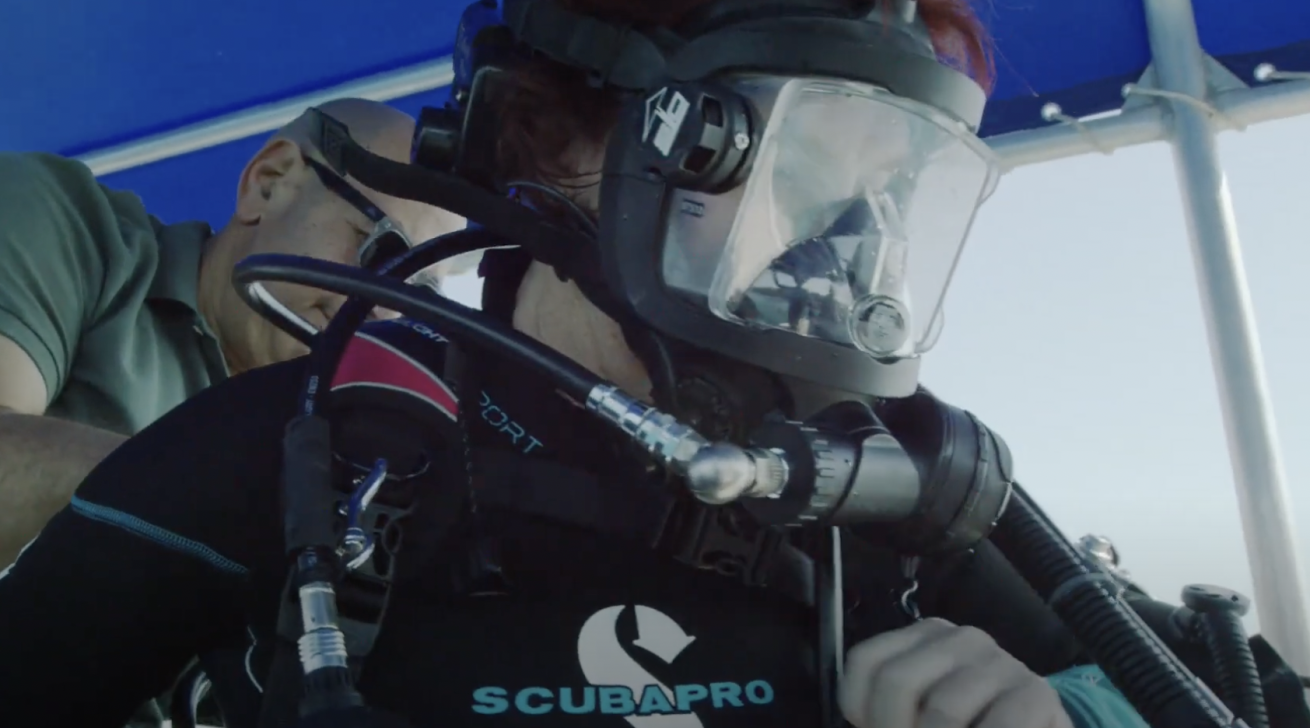
Global Citizen ForumDeborah Brosnan before the world's first underwater panel
A Step for Conservation Diving
I met Richardson and Brosnan at the Global Citizen Forum in the United Arab Emirates’ Ras Al Khaimah last December. The location is known to have some of the most diverse coral reefs in the country, playing a vital role in the marine ecosystems of the warm Arabian Gulf. It seemed a fitting location for the unusual underwater feat I was about to see.
The duo participated in the world’s first underwater panel to raise awareness for the OceanShot initiative, a marine restoration project they’re working on which uses technology and advanced materials to revive reef ecosystems. OceanShot is said to mimic the unique conditions that allow reef ecosystems to thrive on climate-resilient, artificial reef structures.
Watching on a screen from the sandy beach, cameras followed Richardson, Brosnan and the event’s founder, Armand Arton, into the depths where the panel took place. Poor water visibility and crackly audio followed, suggesting some room for improvement in underwater communication gear. However, their broader goal to spread ocean awareness was clear.
“We always talk about the oceans from the surface, and I really wanted to talk about the oceans in the ocean,” Deborah later told me, explaining that every other panel she’s attended has taken place on land. Seemingly appealing to a non-diving audience, her goal was “to actually show people what it's like to be underwater.”
Following the historic panel, Richardson and Brosnan slipped out of their wetsuits and sat down with me moments after they dried off. As a scuba diver and freediver, I wanted to know what the future holds for our oceans, reef restorations and PADI.
A Question of Scalability
Reef restoration projects are now relatively common; you’ll find them in almost all countries where a reef exists. However, the biggest challenges facing such initiatives are scalability, collaboration and funding. Most projects are still in their early years, further suggesting there’s more to learn from restoration projects in the future.
“Can we scale? That's really a key question,” Drew said about the mounting number of reef restoration projects emerging around the globe. He added: “There's a lot of small impressive projects, but they are fragmented, how can we take these projects and scale them across the planet?”
Deborah is sure scalability is possible and believes technology will also play a crucial role in the future of reef conservation. Rather than using divers to monitor the reefs’ success, OceanShot relies on AI cameras that monitor the reef structures they've implemented in Antigua & Barbuda, identifying 36 species of fish that have already returned. Sharing data across future reef projects will likely become crucial.
To counter fragmentation, Drew also believes we need new approaches to generate interest and, crucially, to attract funding on a global scale. “If you convince Elon Musk that saving the ocean is urgently important, he's got the innovation, technology and the satellite web around the world. What could that do to upload and scale?” he added.
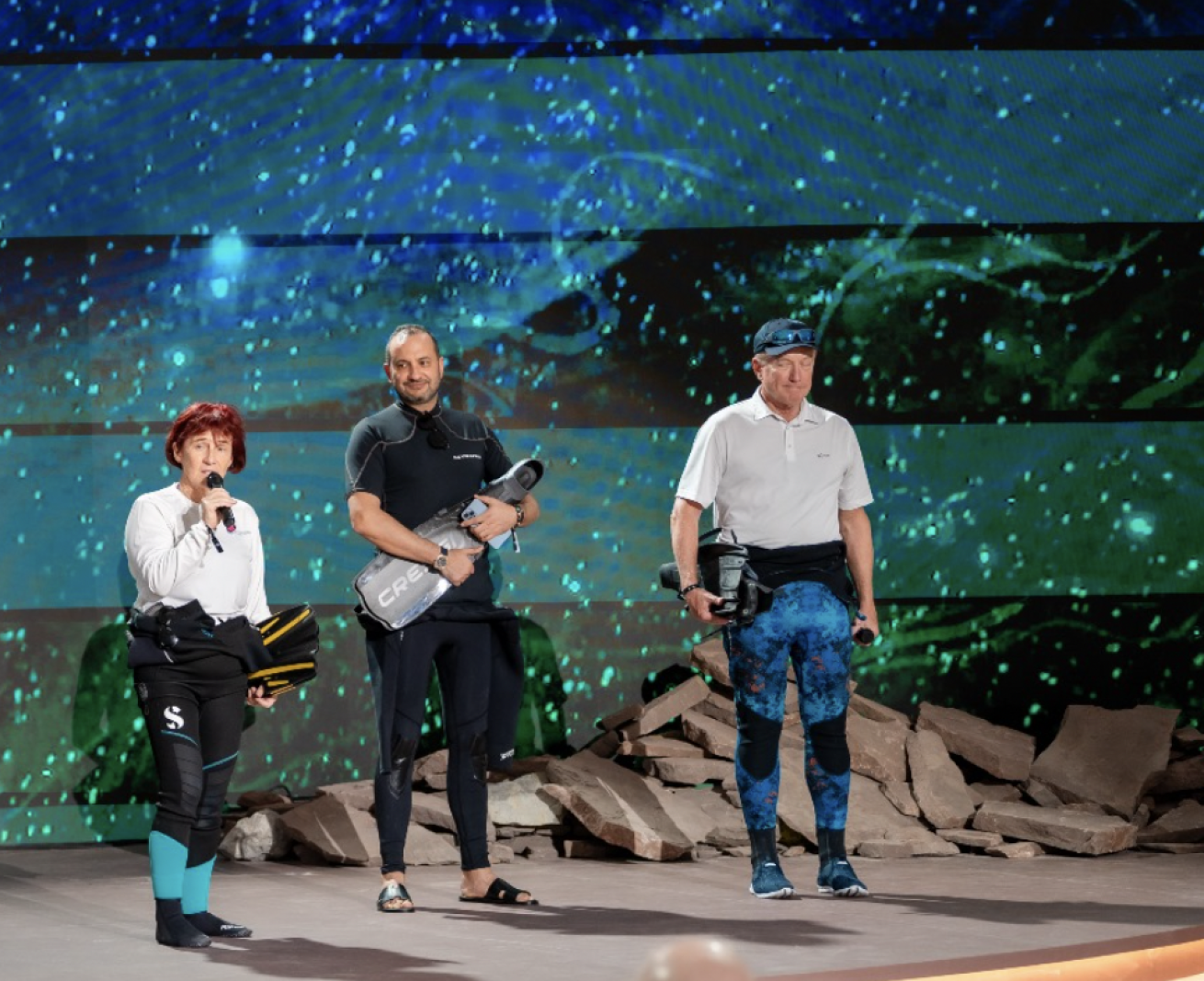
Global Citizen ForumDr. Brosnan and Drew Richardson spoke about the urgent need to protect our reefs
A Future Potential
While Brosnan and Richardson spoke of clear potential in restoring marine ecosystems, the turning point for putting ideas into action is upon us. So what comes next?
“From the government, you need good regulation, but you also need to provide people with incentives to invest in the ocean,” Deborah urged. The marine biologist says the wider goal is “making more people aware of the oceans and providing ways that are attractive for people to do something.”
Speaking to me from a summit full of influential people, Drew similarly concluded: “It's urgent, the ocean's screaming for us. If it's urgent, don't say, in five years we'll meet again and talk about it. I have no time for that. We're…doers. It's not trivial, it's actually meaningful.
He added: “By the time we get a billion aggregated souls on this planet doing something constructive, we'll need two billion.”
Related Reading: A Diver’s Guide to the World: Exploring Above and Beneath the Surface
Connections Among Ocean Advocates
With his tall stature and resonant voice, PADI’s CEO has the innate ability to command the room. In stark contrast, Dr. Brosnan’s petite frame belies a formidable depth of expertise in marine conservation. Together, they arguably have considerable influence in shaping how we see our oceans. Stripping away their coveted titles, however, they’re also two people deeply passionate about the sea.
Richardson recalled a story he read in The Immense Journey, a book of short essays by Loren Eiseley. In it, a bystander on a beach full of stranded starfish watched as another returned the marine creatures one by one to the sea. When asked why, as it made no difference to the stranded colony, the protagonist replied: “It makes a difference to this one.”
Overseeing an army of over 128,000 professional instructors, 6,200 dive centers and resorts, and 30 million divers at PADI, Drew has the capacity to instill a similar sense of purpose among his team. Our connection to the natural world is something he seems to firmly believe in: “You can't say we're here and nature's there; we're part of it. I'm always amazed when people say we have a space for nature…. We are a part of and in nature.”
Deborah similarly shares a deep connection with the water, shaping her work and commitment to our reefs.
“People think of the ocean as how we're divided, but it's not… it really is how we've always been connected,” she said. “I often tell people if you ever feel someone's far away across the sea, both of you go down to the ocean, put your hand in… and you will feel that connection to them across the water.”


